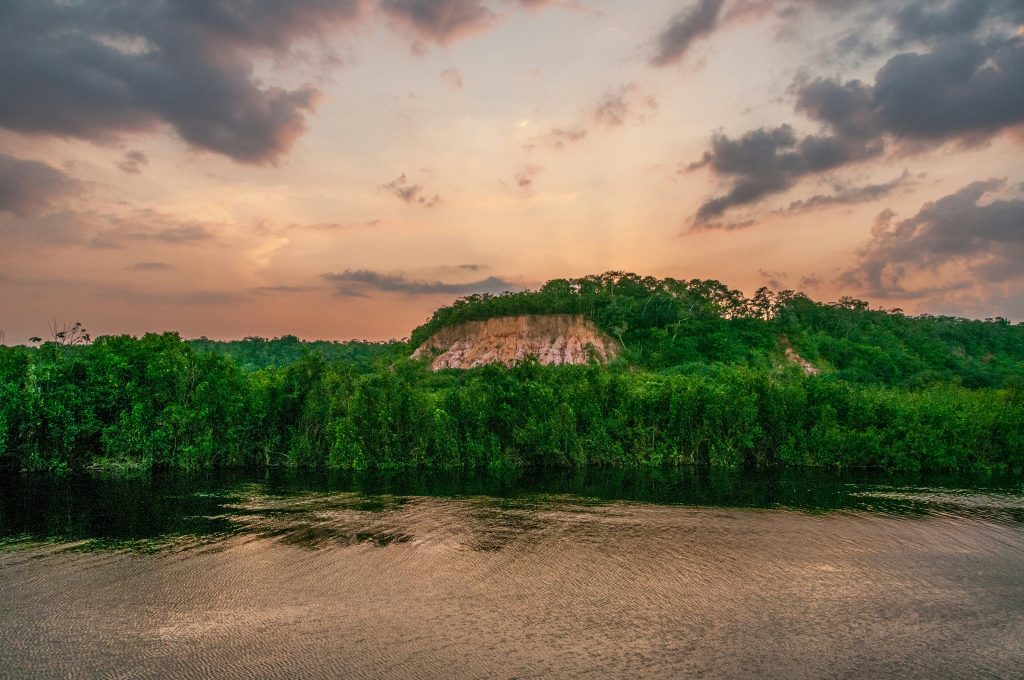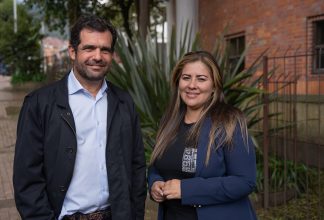Colombia: The deadliest country for environmental defenders

In 2023, a staggering 79 environmental defenders were killed in Colombia, making it the deadliest country in the world for individuals fighting to protect the environment. A new report from Global Witness reveals that 196 land and environmental defenders were murdered globally in 2023, with eight of the ten deadliest countries located in Latin America.
”The challenges and obstacles faced by defenders in one of the planet’s most biodiverse regions should be a global concern, as their defense work secures the future for all of us, says Pia Alvira, Head of Regional Programming in Latin America.
The new Global Witness report documents 196 murders of land and environmental defenders worldwide during 2023. Colombia led the grim statistics with 79 killings, followed by Brazil with 25, and both Honduras and Mexico with 18.
”It is deeply concerning that once again, Colombia ranks first, and eight Latin American countries are among the top ten most dangerous places in the world for defending the environment, says Pia Alvira.
Indigenous and Afro-descendant Communities at Risk
A significant portion of the murdered leaders belong to Indigenous and Afro-descendant communities, who have historically suffered marginalisation and disproportionate human rights violations due to territorial disputes, armed conflicts, and large-scale mining projects.
”Their knowledge positions them as key actors for mitigation, adaptation, and resilience efforts when addressing the challenges we all face due to climate change, says Pia Alvira.
We call for urgent action
Civil Rights Defenders stress the urgent need to stop the escalating violence against environmental defenders, and there are opportunities to act. The Escazú Agreement, which ensures access to environmental information, public participation, and justice, was recently ratified by Colombia’s Constitutional Court, but its implementation has not yet started. In countries like Honduras, civil society is pushing for ratification; over 7,000 signatures were recently delivered to Congress, urging President Xiomara Castro to bring the agreement forward for discussion.
“This report shows that we still have a long way to go, and the urgency cannot be ignored. Defenders’ lives are at risk while slow and, in many cases, unwilling states delay taking action to protect the right to defend human rights. It’s crucial that the international community stands with these defenders and strengthens their efforts,” says Pia Alvira.
The Escazú Agreement provides a clear path to addressing the crisis highlighted in the Global Witness report: access to environmental information, community consultation in environmental decision-making processes, the use of justice for environmental harm cases, the defense of environmental defenders’ rights, and the respect for the rights of Indigenous peoples and local communities.
“Implementing these measures with the communities and international support is crucial,” says Alvira.
How we work to protect human rights defenders
Civil Rights Defenders work to improve the security of human rights defenders worldwide. In case of emergency, our Emergency Fund can provide tailored support to ensure that the human rights defender can continue their fight.
“We can build up an organisation’s capacity through trainings and consultations and provide both organisations and individuals with security measures and improvements. We can provide psychological support to those who have been attacked and legal aid to help human rights defenders facing arrest or other legal harassment. If necessary, we can help a human rights defender temporarily relocate. We can even provide humanitarian support to the families of imprisoned human rights defenders,” says Zinaida Muradova, Head of Rapid Response Unit at Civil Rights Defenders.
Read more about how Colombia’s women-led organisation, Asociación de Mujeres Campesinas de Argelia (AMAR), continued their work with the support of Civil Rights Defenders Emergency Fund here.


